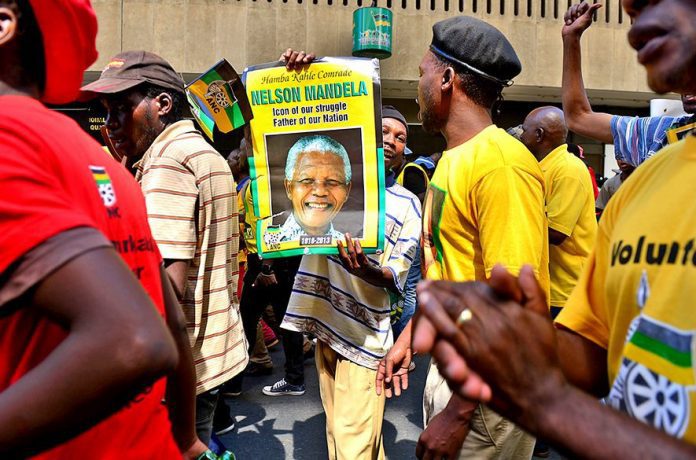The ANC has for donkey’s years seen itself as a broad-church, accommodative of a variety of ideological strands within what has come to be known as the Tripartite Alliance.
The ANC’s concept would be used to coalesce into a single solid block labour federations such as Cosatu, the SA Communist Party, civic entities such as the South African National Civic Organisation, among others.
To some extent, the church itself, through the South African Council of Churches (SACC), became part of this labyrinth structure aimed at strengthening the ANC’s hand in defeating the National Party’s apartheid system.
Leaders such as Beyers Naudé and Frank Chikane, among others, were respected leaders of the SACC, and they also played a prominent role in the life of the ANC.
These were difficult times of oppression and mass killings of political activists by the death squads of the racist regime. To suppose that the church should not have been involved in political struggles of the people would be an act of not understanding what the mission of the church in society ought to be.
I draw these parallels to illustrate the intricate long history and origins of the broad-church concept, which the ANC adopted for itself to keep peace and unity among itself and with its ideologically aligned formations.
For the sake of completeness, it needs to be said the concept is not of ANC creation. It is a concept that was coined by the Anglican Church, and more precisely, the Church of England, many years after it broke away from the Roman Catholic Church in the 16th century.
While the breakaway was influenced by church-political decisions propagated by the Church of England, the idea of broad-church was adopted by the church as an attempt to keep the Anglican Church together, despite sharp “ideological” differences brought about by church polity of the time.
Within the Anglican circles, there were many adherents, notwithstanding the breakaway, who continued to identify with Rome, and were loyal to the pope, cynically described by their opponents as “Papists”.
With its unity threatened, the church in its wisdom, resolved, in order to avoid more future storms and break ups, it would, for its own sake, learn to to “live and let live”, and to co-exist as “a broad-church”, knowing that wisdom “resides in all of us”.
The ANC today, although the bearer of the rubric of broad-church philosophy borrowed from the Anglican Church, is in danger of disintegrating.
Even its democratic centralism doctrine, a dogma in which political decisions reached through a voting process binds all members of the party, is undermined by some of its members who are hell-bent to turn the country’s fiscus
into an “eating trough” or a “mafia bank”.
The existence of factions, including the emergence of the radical economic transformation unit, have threatened to destroy the broad-church formulation that has for years kept different ideological strands within the ANC optimally functioning. The intellectuals who kept the ANC a decent organisation, and
trusted by society, have quietly left the Madiba party. They cannot imagine an ANC with no sense of morality.
The organisation has been infiltrated by crooked cadres whose only reason to be ANC members is “to eat”, and less to serve the interests of the electorate. This we know because the Zondo commission told us so. The centre no longer holds. Former president Jacob Zuma, in his political recklessness, largely had a hand in destroying the ANC.
Now its obituary is being prepared, with the epitaph emblazoned across its tombstone: “Here lies the remains of the glorious movement, the ANC, destroyed by greed and corruption.”
The ANC is on its deathbed. The electoral support has diminished. With cap in hand, the ANC seeks alliances with its sworn enemies, including the IFP, EFF and COPE, to run metros.
Terminus station the ANC has reached.
• Mdhlela is a freelance journalist, an Anglican priest, ex-trade unionist and former publications editor of the SA Human Rights Commission journals.
Follow @SundayWorldZA on Twitter and @sundayworldza on Instagram, or like our Facebook Page, Sunday World, by clicking here for the latest breaking news in South Africa. To Subscribe to Sunday World, click here



